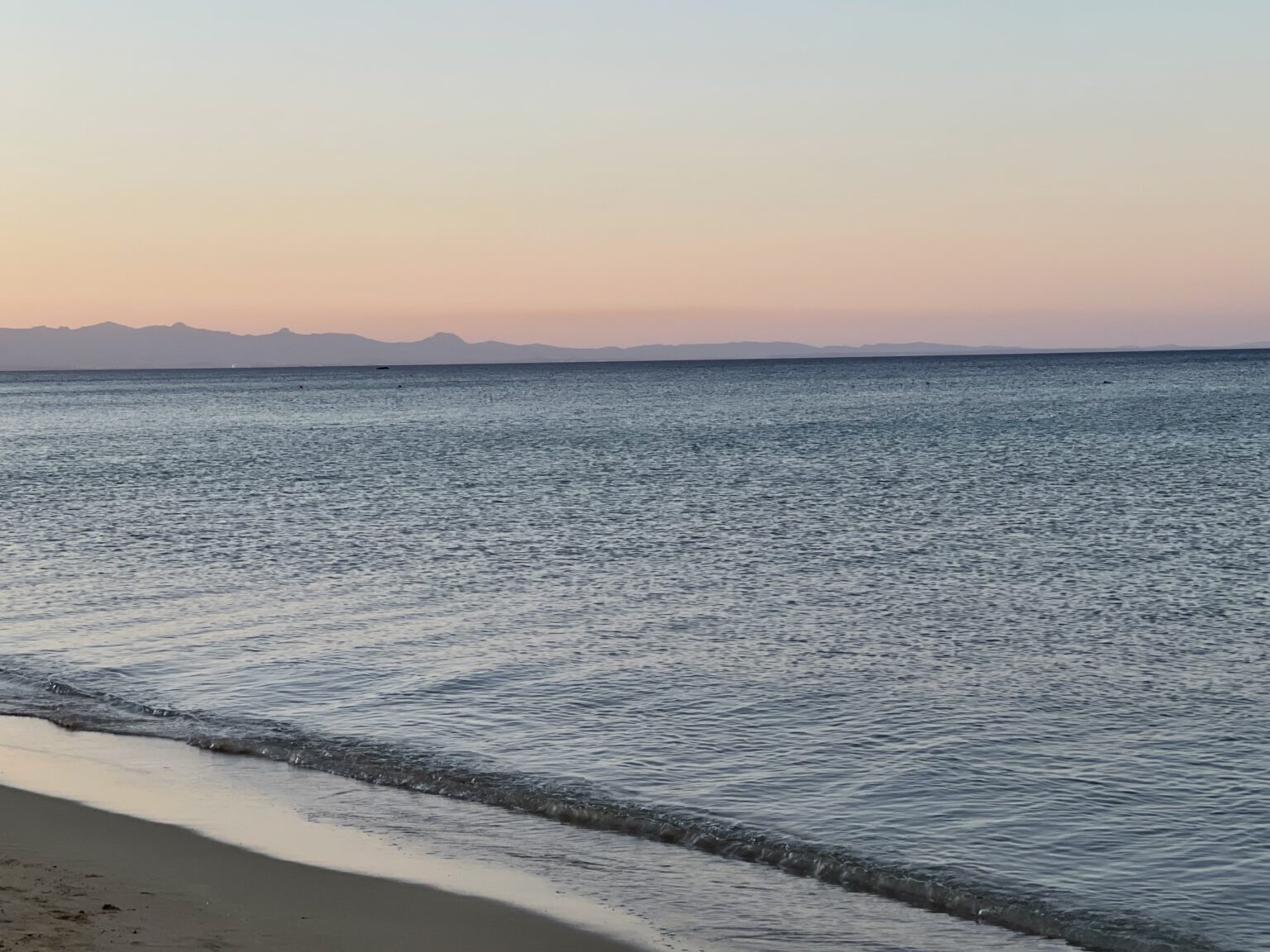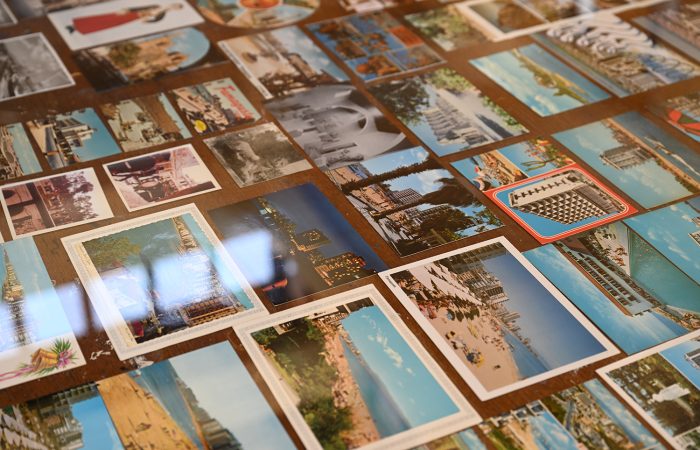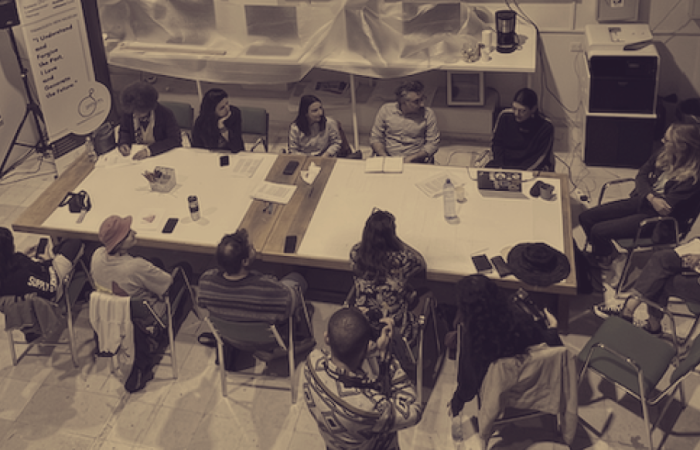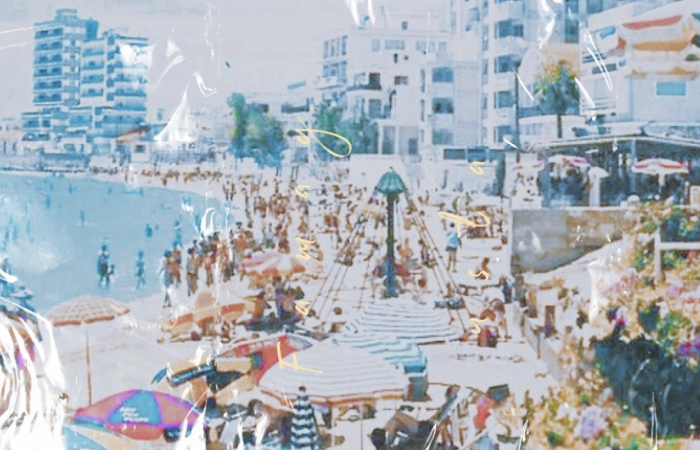This is a blog post that was written by Eralp Kortach for Buffer Fringe 2021. The team of five spent four days together in Limassol & Famagusta to find connections between the two cities for 95 Stops +
Majority of the team is now part of Famagusta New Museum team so we are giving a glimpse of those four days to you all that it inspired the current activities of Famagusta New Museum.
Four days, five people, two cities. Nurtane, Elena, Yiannis, Ioulita and Eralp started their four days long journey together in Limassol. No one exactly knew what to expect or what to look for but everybody had discovered so many things, emotions and so forth. Old Turkish-speaking Cypriot quarter of Limassol beared more surprises that one could have expected. Local καφενείο opposite the Αναγέννηση/Anagenisi Park (where the sign for old T/C Park Gazinosu still lives) is a hotspot for the elderly of the neighbourhood. That’s where the group kickstarted this journey. Neighbourhood is mostly comprised of Greek-speaking Cypriot refugees who had resided in the area after 1974 and also Turkish-speaking Roma community (Gurşini/Γουρσινι)…Hearing both these languages spoken simultaneously provided a bittersweet snapshot of what life could have been like now. Co-existing side by side…A few doors up the καφενείο, they visited Apollo Cinema, formerly known as Taksim Cinema. Maro, who lives in the house that is attached to the cinema kindly showed the now derelict cinema to the group. Her family had to leave everything back in Varosha where they owned & run Apollon Cinema. When they entered the space they were mesmerised despite all the dust that covered everything. The old posters on the wall transported them back in time and if they arrived there blindfolded and opened their eyes there, they could all believe that they were in Varosha. There could not have been a better place to understand the parallels between the two cities and between the communities of the island.
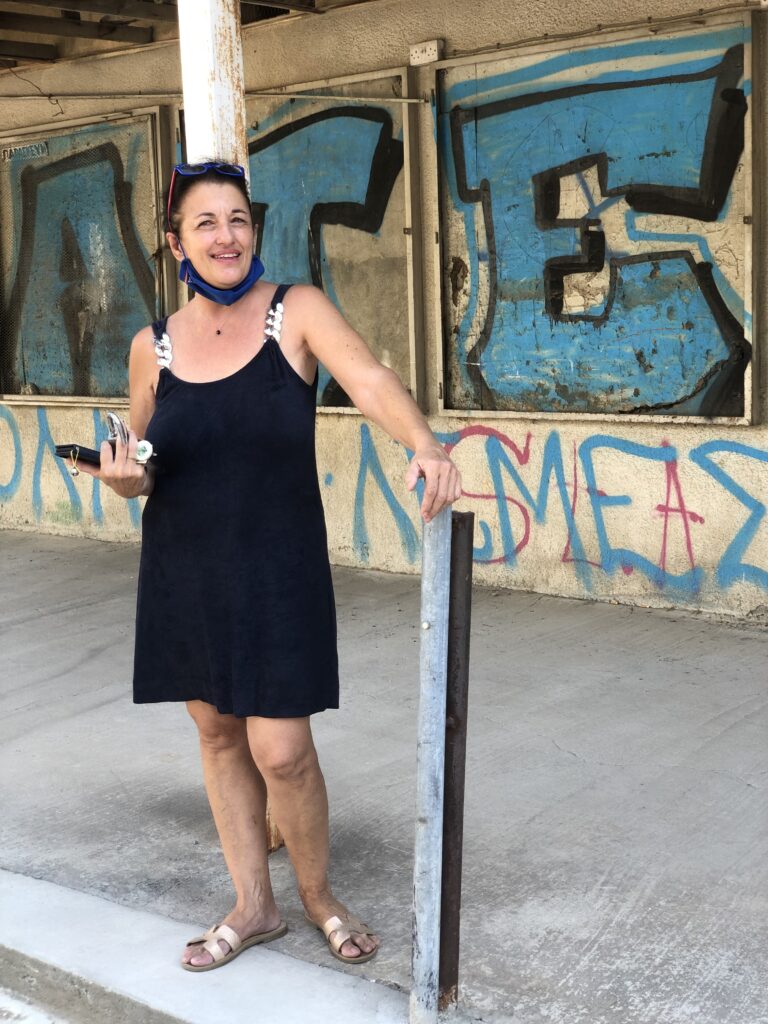
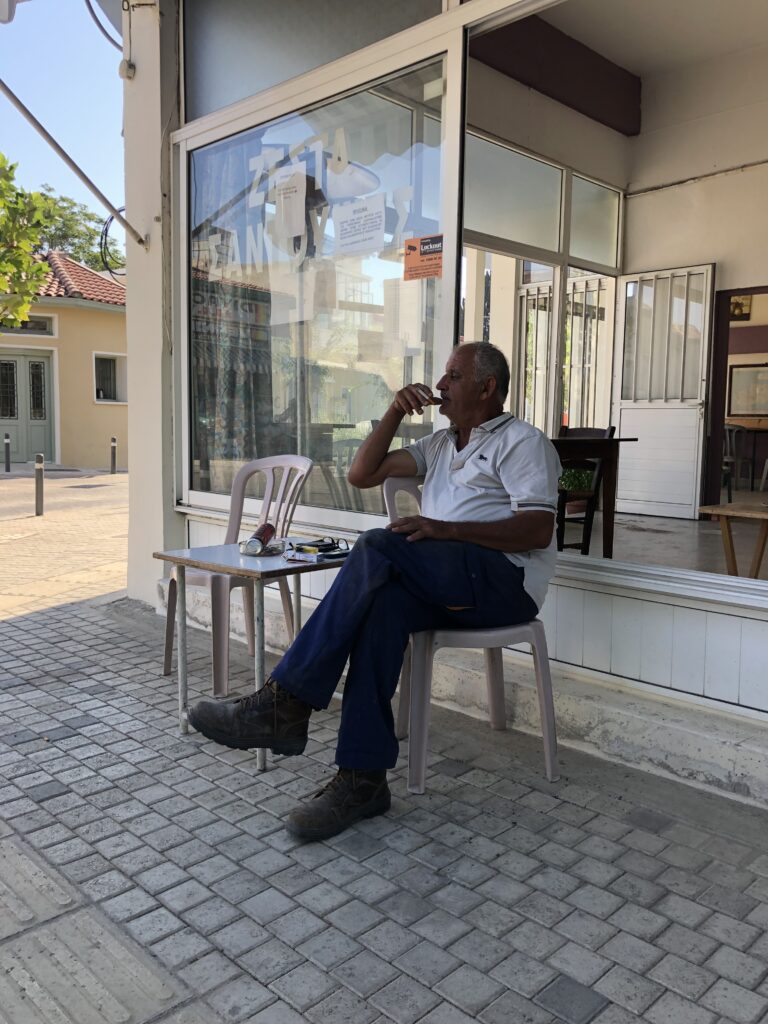

Despite the heat, the journey continued towards the centre of the Old Town Limassol. Freddo espresso, muhallebi/µαχαλεπί and conversations on the ever-changing skyline and image of Limassol. Conversation also led to the sense of freedom everyone felt in Limassol and minimum presence of the military and roads that led somewhere, contrary to Famagusta. However after a quick pit stop at Lady’s Mile, the road did end there too. Another country’s military bases were there, present. It didn’t spoil the day. Drive by Kourion towards Paphos and Cypriot lunch (with a British twist) at the tiny village of Erimi. All accompanied by discussions, about different military presence on the island, about the heat and about food.
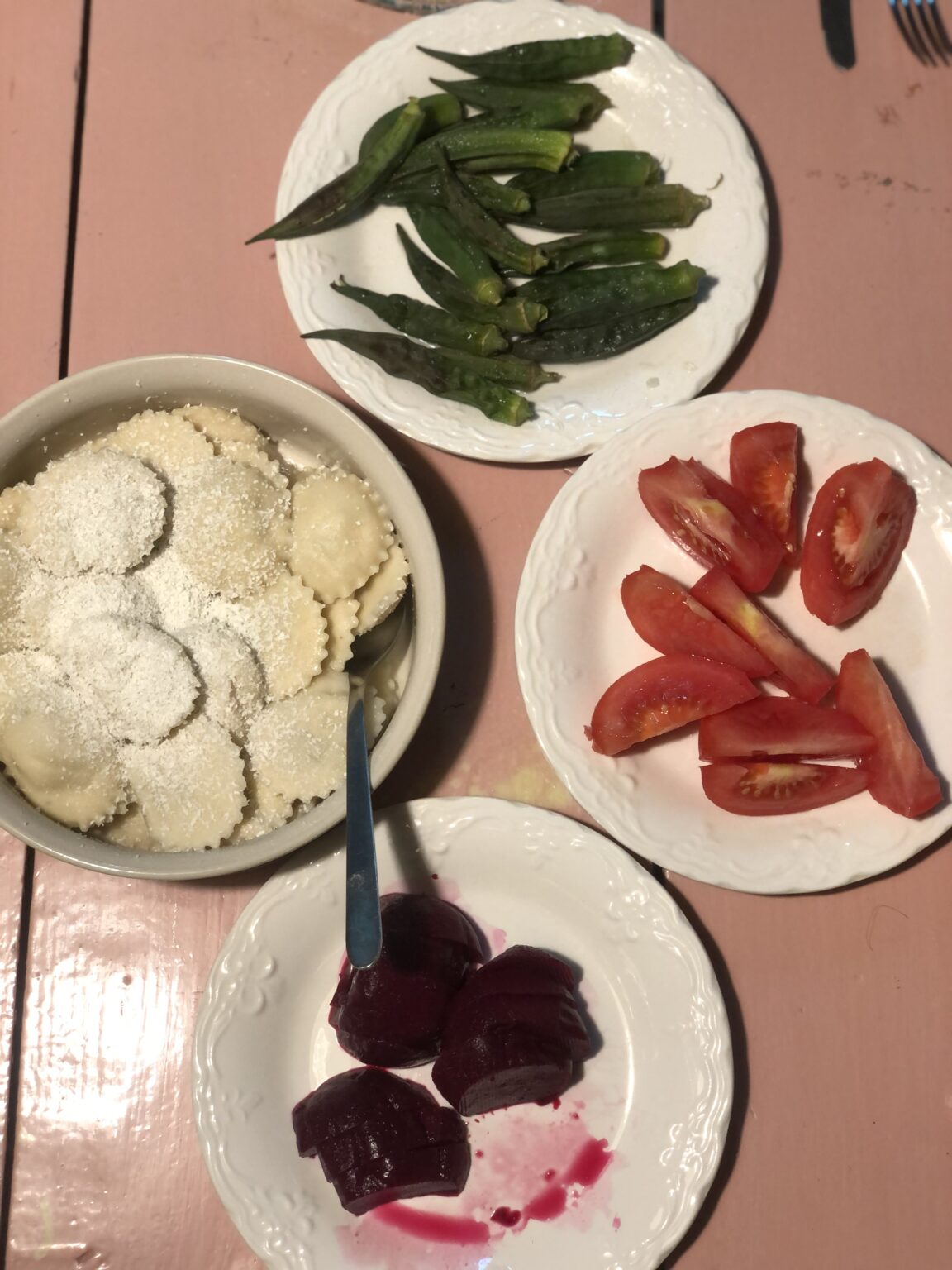
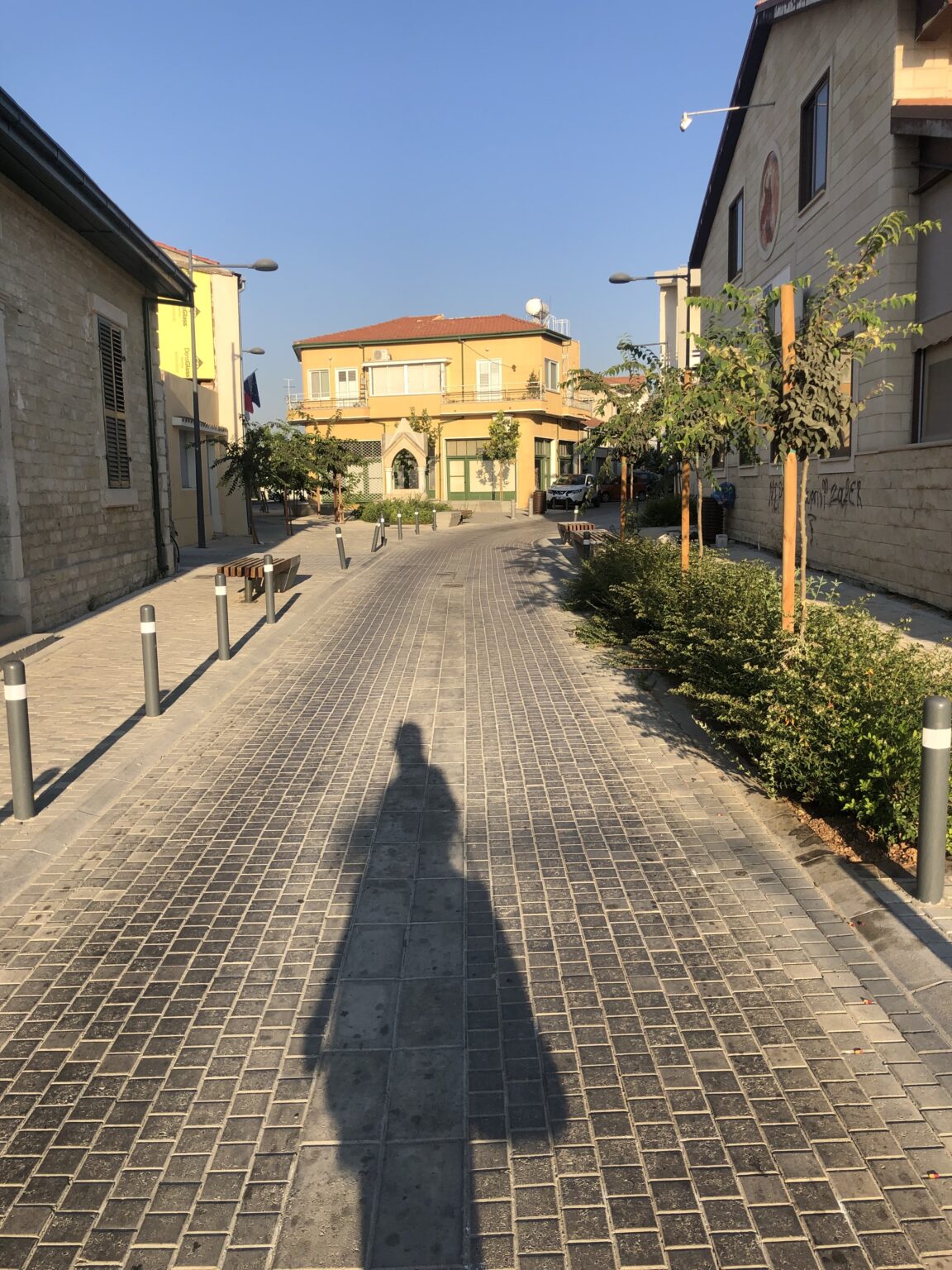
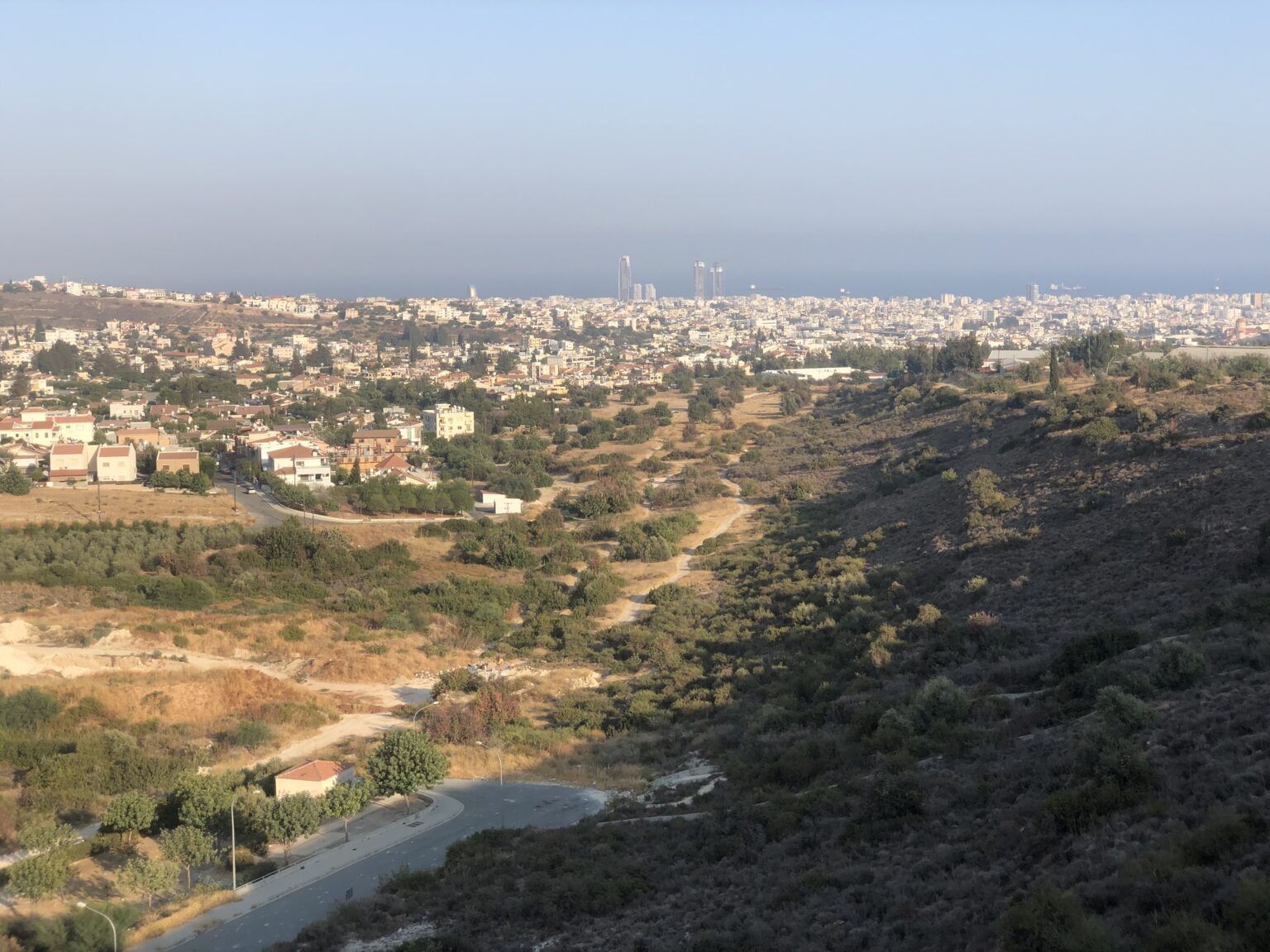

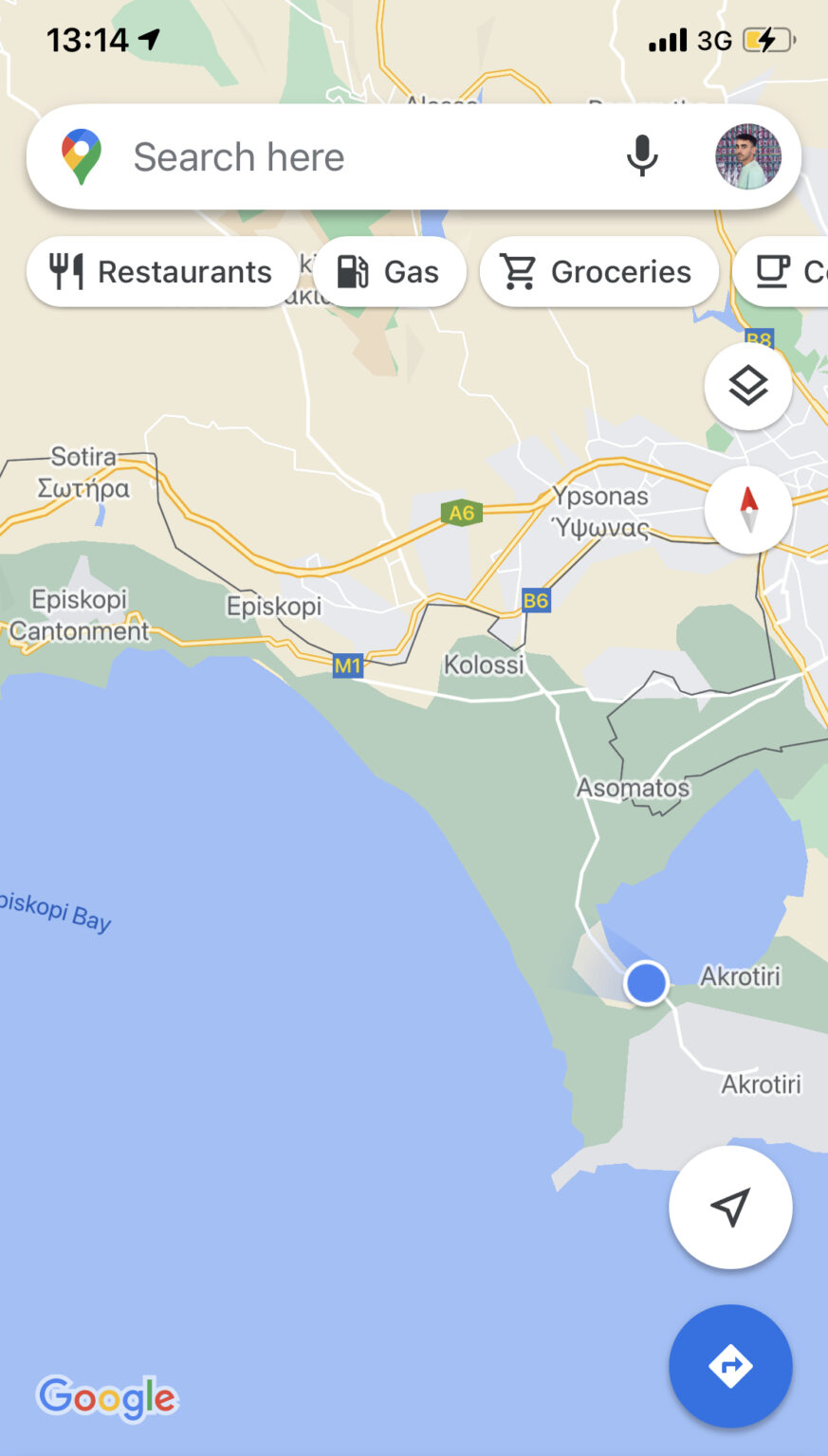
Molos, the most sought after location in Cyprus probably, provided a fresh breath of air to those coming from Famagusta. Despite the skyscrapers and their shadows, for them to be able to walk by the sea, live by the sea, eat ice-cream by the sea, be by the sea is something they can dream of doing in Famagusta. Famagusta is cut off from the sea by the fenced city of Varosha, the port and then military bases. The sea is there but accessible. In Limassol, they let the breeze coming from the sea to soothe them.
Famagusta region too got its share from new developments by the destructive construction companies. Trikomo/Iskele (according to Republic of Cyprus the area is in Famagusta region) bears the empty and often tasteless high-rise buildings along the coast. Like in Limassol, they cater to a foreign audience, selling the Cyprus dream. The beach is often cited as the ‘most beautiful coastline in Cyprus’ in the promo material of those construction/destruction companies yet they fail to mention that the lack of sewage system in the area causes the waste end up in that very beach they are so proud to promote. It doesn’t get more Cyprus than this.

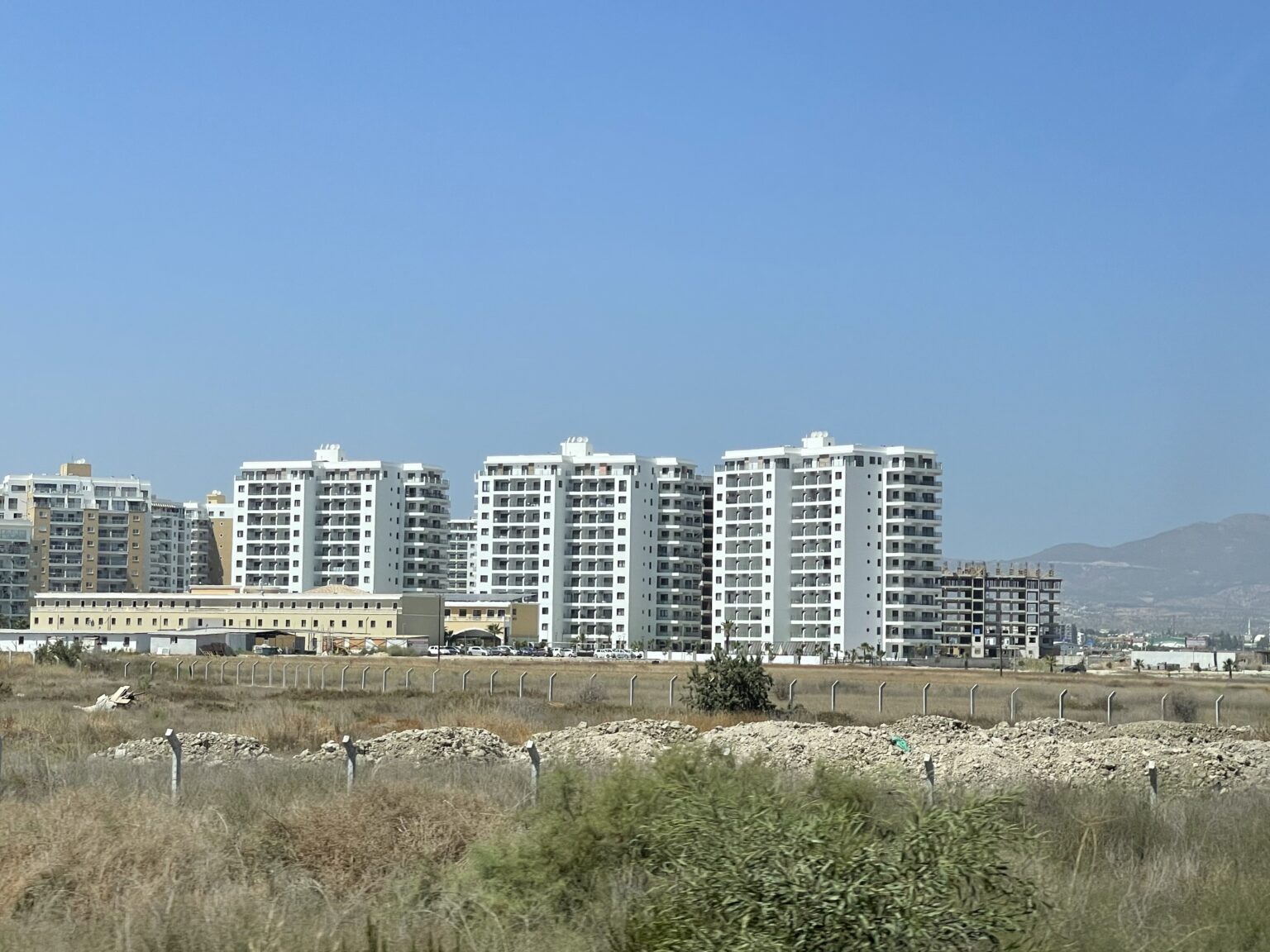
Perhaps this is why they swam at Bedi’s Beach instead. The sandy beach that lies on the shores of the ancient kingdom of Salamis with an almost-derelict pier that is about to collapse. It does represent Cyprus quite well actually. The access is denied from the patio that leads to it with a metal gate, however people climb to it from the side stairs which are in the sea. It’s like Cyprus. Access is denied but we find a way to come over these obstacles and cross the border.
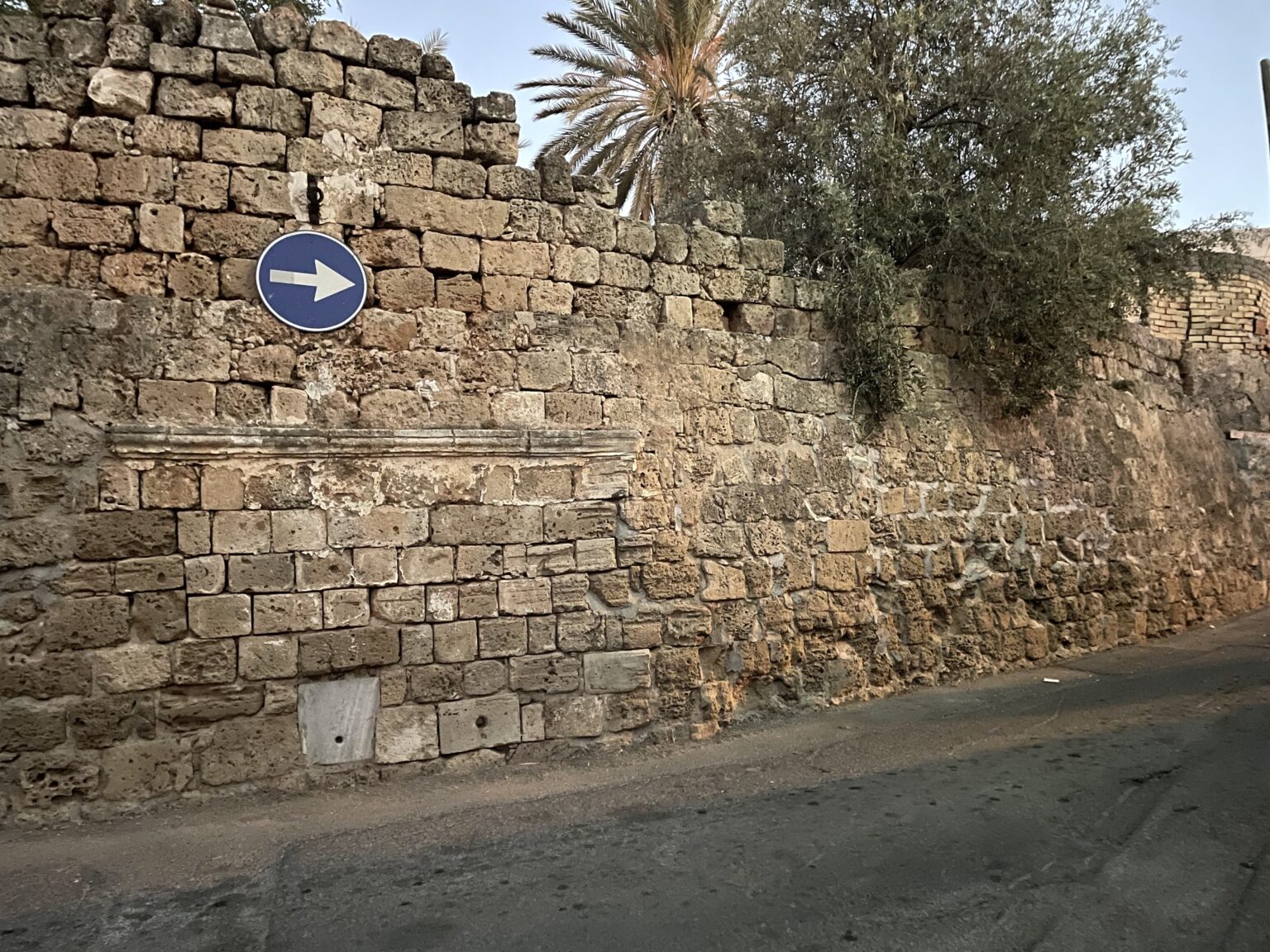

Varosha. Fenced off part of Famagusta that Nurtane & Eralp grew up next to. It’s the hometown of Yiannis where he made some of his happiest memories in life and it’s Ioulita’s father’s hometown too. For Elena it was a unknown yet a familiar place heard in the stories or it was a picture that existed in school books with Δεν ξεχνώ written over them – I don’t forget.
Yiannis’ vivid memories accompanied their walk in the newly opened parts of Varosha. He remembers every single detail. Who lived where, where you could get the best spinach pie and which shop sold what.
Varosha used to be known for its orange orchards and annual orange festival. The orchards have long disappeared. However in the newly renovated old Municipal Gardens, some of the metal sculptures that used to be decorated with oranges during the festival still exist. Yiannis, Elena and Nurtane paid an homage to those days with an orange ceremony. The ritual was short but it could not have been more symbolic.

The walk continued until the last possible point that one can walk to. Dark tourism is really kicking off there by the way. You can now take a bus once you are inside the fenced off area, hire bicycles and you need to pay for the sunbeds. The last beach where the infamous picnic took place in 2020 is the front yard of Julia Court, owned by Ioulita’s grandmother. She had finally seen that building, the one that she heard from her family and the one that they toasted to every Christmas ‘To the days that we’ll go back’. Swimming there while the sun was setting ended this journey in the most perfect way. Cleansed from the heaviness of the past days.
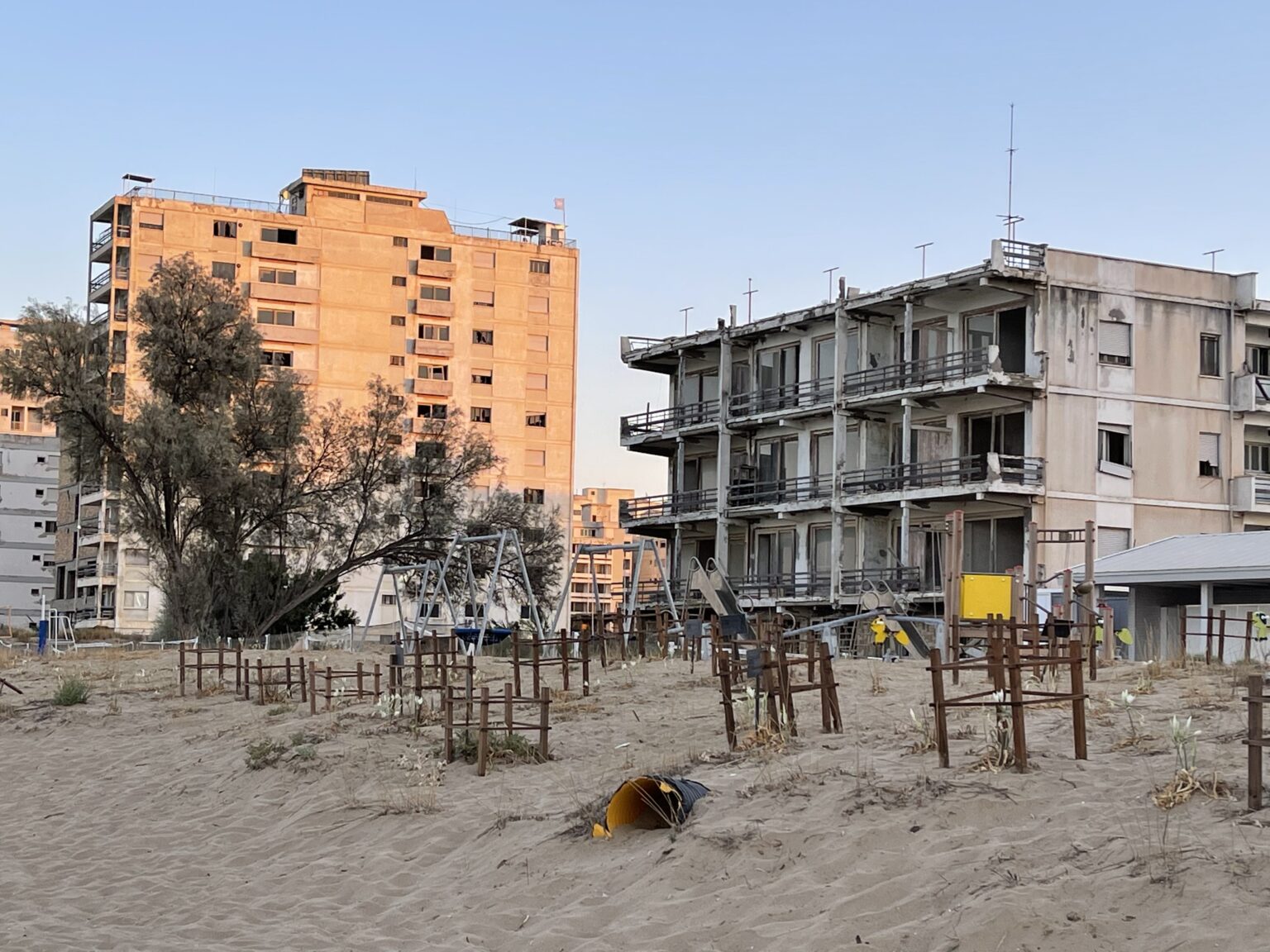
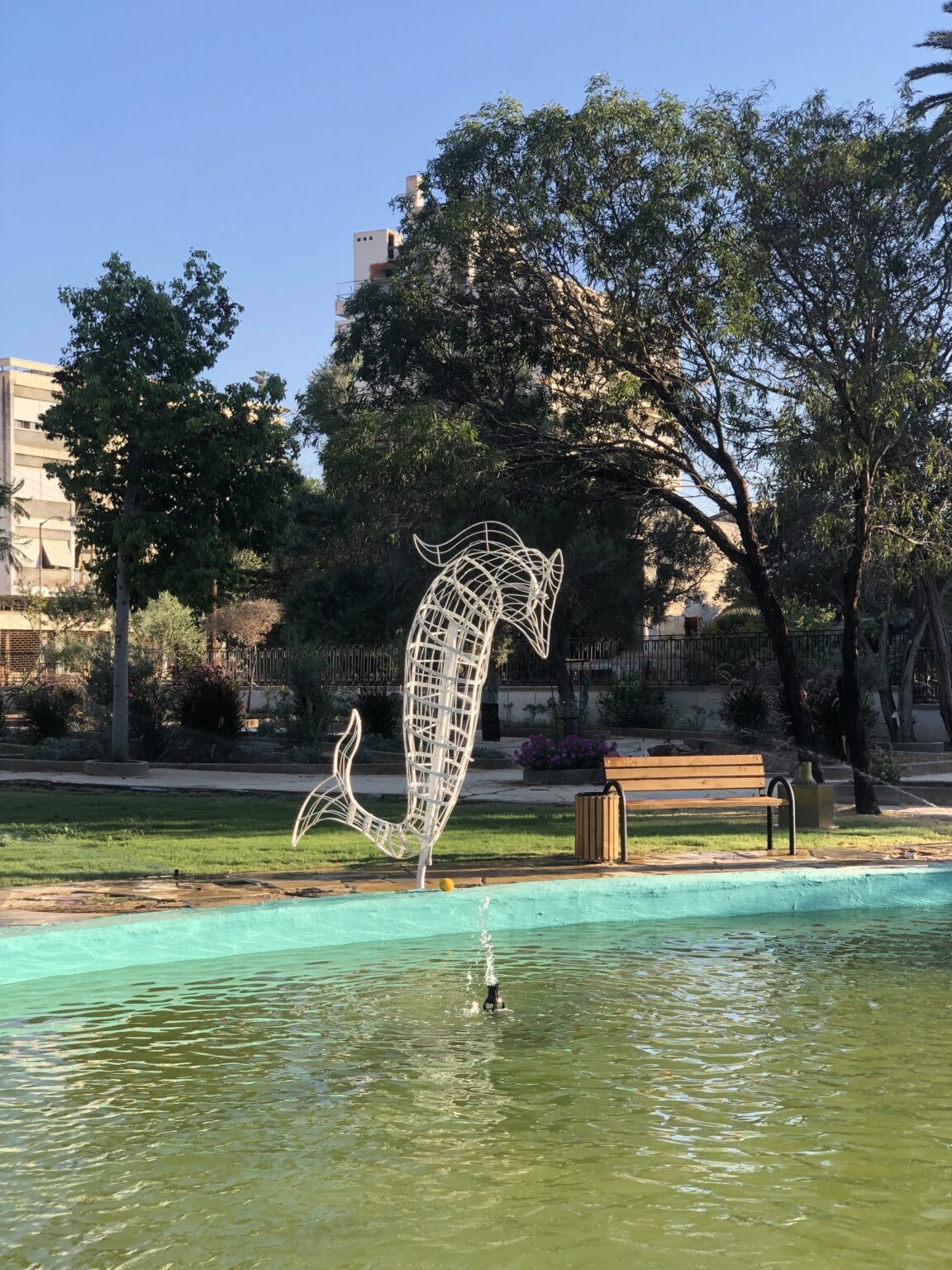
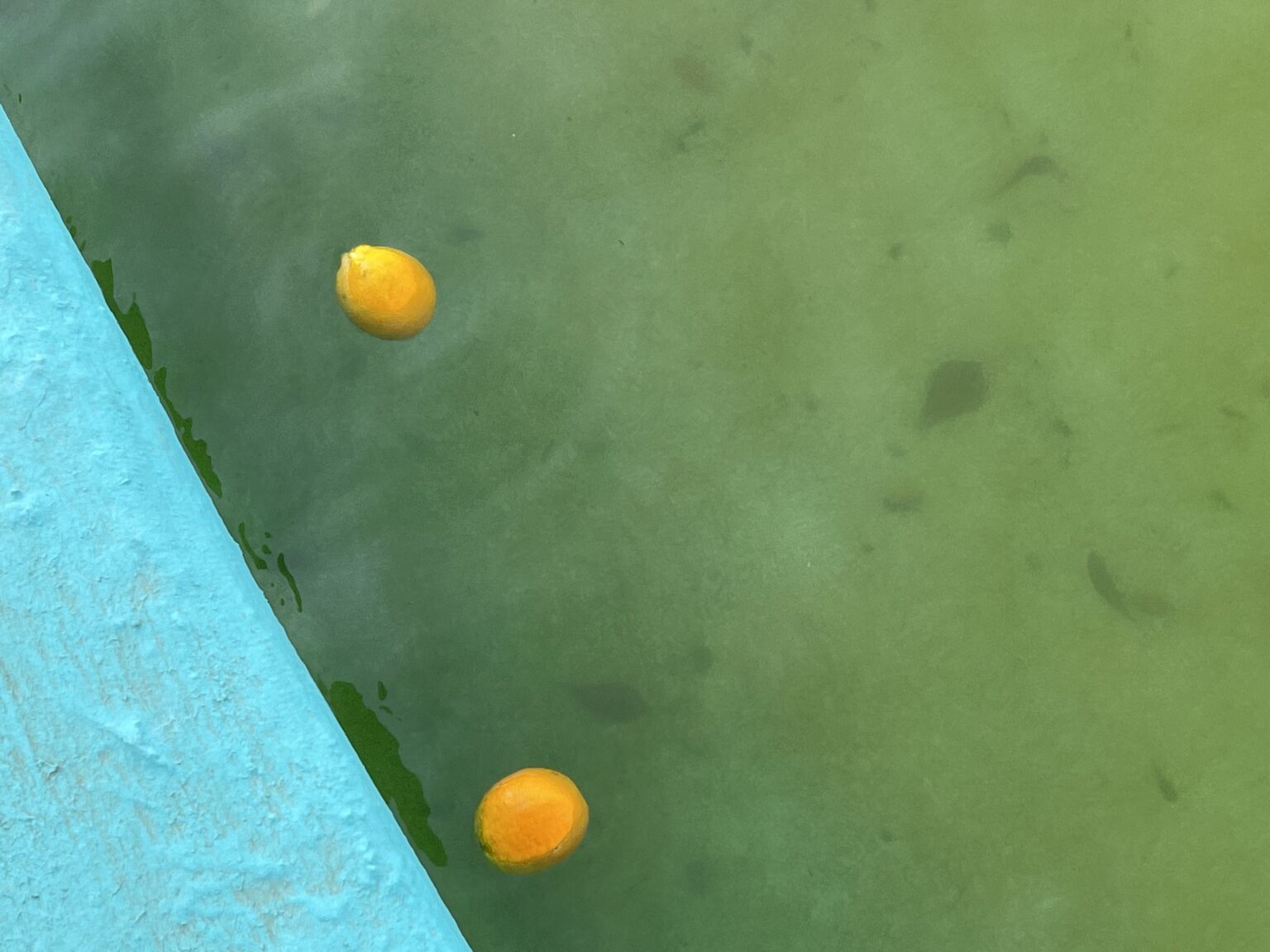
It’s hard to control feelings and thoughts whilst experiencing all these. In fact, it’s hard to just exist in Cyprus most of the time and it was this that perhaps they experienced. Often we try to detach ourselves from reality. For some moments you just forget where you are and what is happening but those four days forced them to exist and experience the realities that shaped and continue to shape their lives.
Aphrodite’s island never truly belonged to its people, ever. But there are so many things that belong to them. Beyond property and possessions. 95 Stops+ enabled them to experience that those stops are sometimes invisible and the memories are invincible.
